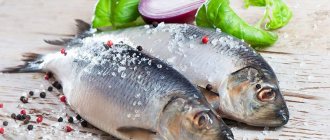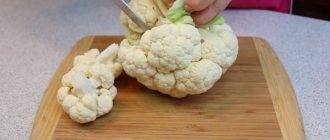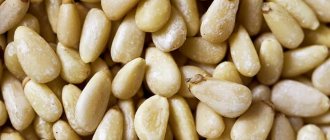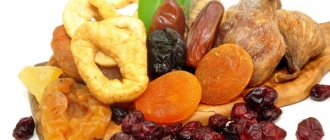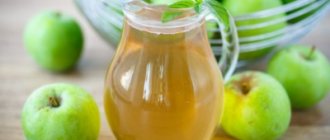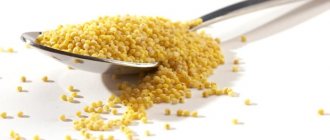Dried fruits are a storehouse of vitamins and microelements at any time of the year. However, is it possible to eat dried apricots while breastfeeding and in what quantity? And what is the possible harm from eating dried apricots?
Consumption of dried apricots during breastfeeding is recommended in the absence of individual intolerance to the product.
Product benefits
Dried apricots are produced by drying pitted apricot fruits. The first place in the production of this dried fruit is given to Turkey, where the fruits ripen naturally and are dried in the sun for 6-8 days.
To make one kilogram of dried apricots, you need to process at least 3-4 kg of fresh apricots. The process is labor-intensive; it is important that moisture does not get on the fruit, which will lead to the appearance of black spots on the finished product.
100 g of dried apricots contains about 70% water, 25 g of carbohydrates, 4 g of dietary fiber, 1 g of protein and 0.15 g of fat. During drying, vitamins A, B, PP, K and D, and microelements - copper, potassium, calcium, iron, manganese - are preserved.
With regular consumption of dried apricots, the functioning of the digestive system improves, the intestines are cleansed of waste and toxins, and harmful free radicals are removed from the body. The product is indicated for kidney and heart diseases.
Dried apricots should be consumed by diabetics to regulate blood sugar levels, by hypertensive patients - to cleanse blood vessels and prevent their blockage, and in case of thyroid diseases.
Dried apricots increase the body's defenses and have a diuretic effect. It is especially indicated for vitamin deficiency and impaired intestinal motility.
With low hemoglobin during pregnancy and lactation, dried apricot will be an excellent addition to the diet. Dried apricots prevent the development of anemia and are indicated for children and adults.
Recipes with dried apricots
A variety of dishes prepared using dried apricots can be truly tasty and healthy. It is imperative to use the most interesting recipe options that contribute to the preparation of natural and healthy desserts.
Pumpkin jam with dried apricots
Ingredients:
- one kilogram of peeled pumpkin;
- four glasses of sugar;
- three hundred - four hundred grams of dried apricots;
- 5 – 6 tablespoons of lemon juice;
- a packet of gelatin.
Cooking method:
The pumpkin is washed with running water, thoroughly cleaned, and cut into small pieces. Place the chopped pumpkin on the bottom of the pan, alternating with sugar. The last one should be granulated sugar.
The pumpkin should sit and release the juice. This process can take up to four hours, and always starts at one hour.
After infusion, the pumpkin is stirred. Add lemon juice. Place on low heat.
Dried apricots are washed, steamed with boiled water and the boiling water is drained. Dried fruits can be cut into small pieces.
After the pumpkin boils, add dried apricots to it.
Cook for 15 minutes, stirring regularly. Strong boiling should not be allowed.
After cooking, turn off the fire. The jam is left to infuse for several hours, after which it is boiled again for 15 minutes.
The pumpkin should not be boiled. If it is noted that it is boiling, it is recommended to immediately turn off the heat. If the pumpkin cubes remain strong, a third boiling is required after 5 to 6 hours.
At the final stage, the finished jam is boiled over low heat for about 5 - 7 minutes and rolled into sterilized jars. Bon appetit!
You can find out if you can eat raisins during lactation in our article. Is it possible to eat dates while breastfeeding? Read here.
Is it possible for a nursing mother to eat prunes, read the link
Cottage cheese with dried apricots
Ingredients:
- 500 grams of cottage cheese 9% fat;
- 50 – 60 grams of butter;
- 100 grams of dried apricots;
- sugar - to taste.
Cooking method:
To prepare the curd mass, use warm butter and cottage cheese at room temperature. The butter is ground with sugar (if desired, you can avoid using granulated sugar to reduce the calorie content of the dessert).
Cottage cheese is kneaded with butter. Bring until smooth using a blender. The curd mass should be homogeneous and without grains.
The dried apricots are washed and poured with boiled water for half an hour. Then the boiling water is drained. Half of the dried apricots are processed in a blender, and the second part is cut into small pieces.
All dried apricots are added to the curd mass. Place in the refrigerator until completely frozen.
Homemade curd dessert with dried apricots is ready. Bon appetit!
Consumption of dried apricots during breastfeeding
Dried apricots during lactation will allow you to restore strength after the process of childbirth. It stabilizes the functioning of the nervous system, reduces the level of bad cholesterol in the blood, and removes poisons and radionuclides from the body.
Dried apricots are especially useful for consolidating stool during lactation, when problems with the digestive tract do not allow food to be thoroughly digested, which means the risk of colic in the baby increases.
If you gain excess weight during pregnancy, dried apricots will help stabilize body weight, and all thanks to its pronounced diuretic effect, eliminating excess fluid and heavy salts from the body.
Dried apricots have a beneficial effect on the appearance of the skin, cleansing it of various types of rashes. Allows you to get rid of facial wrinkles. Nails and hair become strong and elastic.
The vitamin complex in dried apricots promotes tissue regeneration, especially in the presence of postoperative sutures, reduces the severity of stretch marks, and removes bluishness of the skin.
The presence of glucose and fructose satisfies the mother's need for sweets without harm to the body. Mommy should not be afraid of gaining extra pounds, because the product is easily digested by the body and does not lead to the accumulation of subcutaneous fat.
Dried fruit compote - benefit or harm
With regular consumption of foods rich in beneficial microelements, human cells receive all the necessary building material. The immune system is strengthened, the functionality of all body systems improves, which has a positive effect on the general condition of a person.
During lactation, an important role is played by iron, magnesium, potassium, and phosphorus. It is possible to maintain the required level in the female body by consuming dried fruits. In addition, this product contains various acids in large quantities: folic, citric, benzoic.
Important! Toxins that accumulate in the intestines gradually penetrate into breast milk. This leads to poisoning of the body not only of the nursing mother, but also of the child himself.
In other words, the question of whether dried fruit compote is beneficial or harmful is resolved by itself. And in many ways it’s more of a medicine. To prevent constipation, you should consume dried fruits in their pure form. For example, pre-soaked prunes. Other fruits and berries also have benefits.
The use of dried apricots when feeding a newborn
Dried apricots in the first month after childbirth are permissible only after heat treatment, and when eating dry fruit, the risk of colic and bloating in the child increases. The optimal period for introducing dried apricot into the diet for breastfeeding is 3 months after the birth of the baby.
Dried apricots during breastfeeding:
- improves metabolism;
- nourishes cells;
- improves the functioning of blood vessels;
- normalizes water balance;
- regulates the activity of the nervous system;
- satisfies the need for sweets and relieves depression.
It is important to monitor the well-being of the newborn, and only if the condition is positive, increase the dose from 1 pc. up to 3-4.
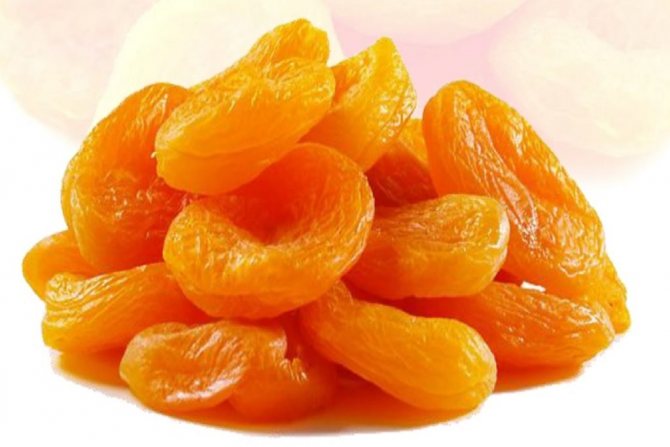
If the baby develops painful symptoms after consuming the product, then you need to postpone taking dried apricots during breastfeeding for 30-60 days.
Precautionary measures
For your information! Raisin-based drinks are introduced into the diet no earlier than 2 weeks after the birth of the child. Compotes from dried apricots and figs can be drunk after a month, and for dates - no earlier than after 4 months.
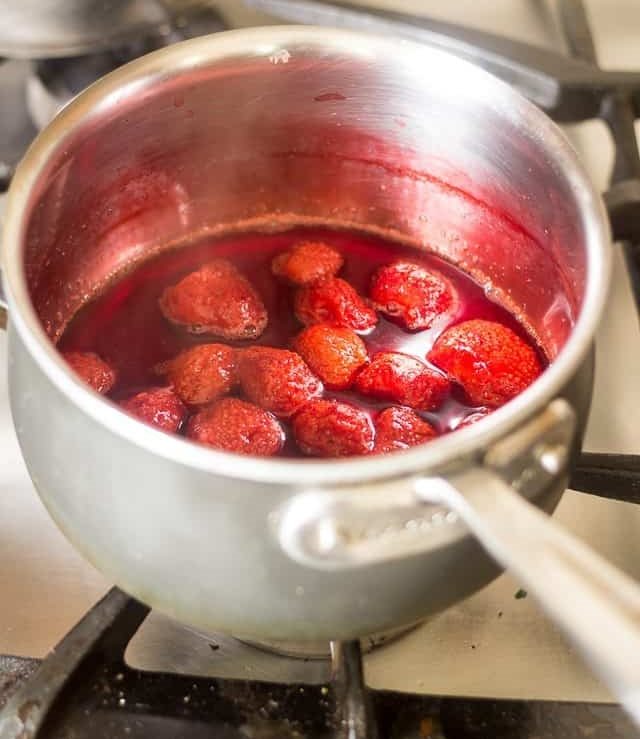
Dried fruits will not cause significant harm to the body of a nursing woman or child. Nevertheless, any mother needs to take note of a number of nuances when consuming dried fruits:
- Try to avoid products brought from abroad, since in this case there is no way to find out exactly how the fruit was dried and processed. Including transportation conditions to the store.
- It is better not to choose varieties that have a strong shine and gloss for dried fruit compote when breastfeeding; they should also be avoided. This is a clear sign that they were treated with special means to extend their shelf life. Adults suffer from this to a lesser extent, but for infants such products will only be harmful.
- Nursing mothers need to pay close attention to the condition of dried fruits and if there is mold, they should not be taken! Fungal spores can cause serious damage to the health of both the woman and her child.
- Everything needs moderation, and this primarily applies to prunes, which have a strong laxative effect. If abused, it can seriously weaken a newborn's stool.
In addition, you must always remember that bright red fruits can provoke allergic reactions. In this connection, it is better not to chase beauty, but to visit the nearest village and buy some nondescript green fruits there (about the size of a small bucket).
Side effects of dried apricots
Abuse of dried apricots during breastfeeding can lead to the following consequences:
- decreased blood pressure in the mother, the permissible portion of dried apricots is 40 g per day;
- allergic reactions in a child - rash, colic, peeling of the skin, abnormal stool;
- heaviness in the stomach of a newborn - abdominal pain, heaviness during bowel movements, difficulty with gas removal.
It is best to use homemade dried fruits during breastfeeding, because industrial ones may contain chemicals that will have a detrimental effect on the health of the mother and child.
Useful properties of the product
Can a nursing mother eat dried apricots? Dried apricots are simply necessary during breastfeeding. The minerals, vitamins and microelements it contains help:
- strengthen teeth, nails, bones, hair;
- improve skin condition;
- form inert tissue;
- tidy up the kidneys and liver;
- stabilize the functioning of the nervous system;
- maintain the required level of hemoglobin;
- strengthen the immune system;
- improve vision;
- normalize metabolism and intestinal function;
- regulate blood circulation;
- regulate the functioning of the thyroid gland;
- normalize heart rate and blood pressure;
- maintain muscle tone;
- remove excess fluid from the body;
- remove excess sodium from the body.
In addition, dried apricots during breastfeeding, being a natural immunomodulator and antioxidant, have a beneficial and complex effect on the body of the mother and child.
Some experts note that dried apricot is quite a high-calorie product. But, it should be noted that these calories are healthy and are easily absorbed by the female body during the period of feeding the baby.
What are the benefits of dried apricots and is it possible to eat them?
You can include dried apricots in your diet during pregnancy. Feeding the expectant mother dried apricots is beneficial. This product helps normalize the functioning of the kidneys, which are under severe stress, normalizes blood pressure, and has a mild laxative effect, which almost completely eliminates such a dangerous phenomenon during pregnancy as constipation. It also promotes the rapid removal of various radionuclides and heavy metals from the body.
How to choose dried apricots
When choosing dried apricots, it is important to pay attention to its appearance. It is better not to buy fruits that are too bright with a rich yellow color, in order to avoid intoxication of the body. It is also not recommended to purchase products with dark spots, dents, or various types of damage.
Dried apricots with a shiny surface indicate the presence of sulfur dioxide in the product, which is used to quickly dry the fruit and destroy pathogenic bacteria.
Such products can harm the body of the mother and child, including poisoning. You can get rid of the chemical by boiling the dried fruit or by steaming the dried apricot for 30 minutes in boiling water, and then using the dried apricots to prepare various dishes.
Dried apricot recipe
A similar drink is prepared as follows:
- 200 or 300 grams of dry raw materials should be poured with hot water and allowed to brew for 15 minutes.
- Then the softened dried fruits should be washed and filled with cold water, where you can add a little sugar to sweeten it (a quarter cup).
- The liquid is brought to a boil, after which it is boiled for another 7 minutes, reducing the “fire” to minimum.
- The finished drink should be infused for 60 minutes.
Dried apricot can be consumed by nursing women in its pure form. However, its amount should not exceed more than 100 grams per day, since this product is difficult for the infant’s digestive system.
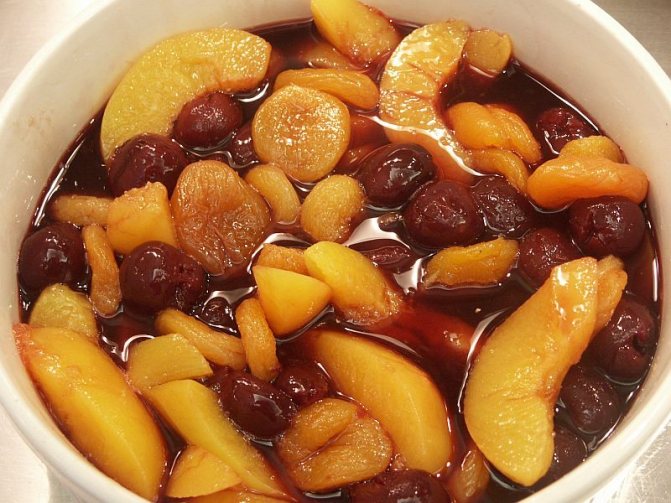
Compote of dried apricots is another matter, but you shouldn’t overuse it either.
Recipes for nursing mothers
Dried apricots can be consumed as an independent product during breastfeeding, no more than 3-4 pieces per day. However, it is healthier and safer to heat-treat the product. What dishes can be prepared using dried apricots?
Compote of dried apricots
Compote from dried apricots during breastfeeding is very simple to prepare. It is necessary to rinse a glass of dried fruit, soak it in boiling water for 15 minutes, then add it to a container of water and boil for 30 minutes. Strain the compote, cool, add honey and a little cinnamon to taste. Leave the drink for one hour before drinking.

Compote of dried apricots is especially useful in securing the stool of a nursing mother.
Cheesecakes with dried apricots
Chopped dried apricots can be added to various desserts, baked goods, jelly, and best of all, treat yourself to cheesecakes with dried fruits. To prepare this dish you will need:
- 500 g homemade cottage cheese;
- 2 chicken eggs or 6 quail eggs;
- 1 green apple;
- 50 g dried apricots;
- 100 g sour cream.
Next, you need to grate the cottage cheese with a fork and add the egg. Separately, cut the apple into slices, sprinkle with sugar and combine with the curd mass. Add crushed dried fruits and mix until smooth.
Form small balls, dip in egg beaten with sugar. Stretch the balls in the palm of your hand until you get a flat cake, place on a baking sheet and bake in a preheated oven for 20 minutes at a temperature of 180-200 degrees.
When a golden crust appears, remove the products. Cool to room temperature. When serving, sprinkle cheesecakes with powdered sugar. A spoonful of homemade sour cream would be an excellent addition.

Dried apricots will be an excellent filling for cheesecakes and will diversify the taste of this already healthy dish.
Candies with dried apricots
It’s easy to make sweets with dried fruits at home; for this purpose you can take dried apricots, prunes, raisins, and walnuts. Pre-steam the ingredients, blend with a blender, form small balls, and place whole hazelnut kernels in the center.
Roll the pieces in sesame seeds, cocoa or coconut flakes and put the candies in the refrigerator to harden for 2 hours. The healthy treat is ready. It is recommended to consume such sweets no earlier than 4-6 months after the birth of the child.
In addition, dried apricots can be added to meat dishes, for example, bake chicken with apples and dried fruits or treat yourself to turkey cutlets with the addition of chopped dried apricots.
With the right choice of a quality product, dried apricots will saturate the body of the mother and child with useful microelements, improving the functioning of internal systems and organs. During breastfeeding, the product should be used carefully, not exceeding the daily norm, then the risk of side effects will be minimal.
The benefits of dried fruits
Many women have to give up all sweets after giving birth. Dried fruits and compote made from them allow, in a sense, to make up for such losses. In addition, in relation to a nursing mother, two main advantages of this wonderful drink can be distinguished:
- Firstly, it brings noticeable benefits when the lactation period is unsatisfactory. Experts recommend that nursing mothers drink a glass of lukewarm compote about 30 minutes before the baby's meal. This will activate milk production.
- Secondly, dried fruit compote during breastfeeding helps those women who often suffer from constipation during the postpartum period. However, newborns also experience this problem during the first months of life. Compote acts as a good medicine because it has a more gentle effect than medications, the active substances of which can pass into breast milk, which is extremely undesirable.
In addition, it is worth noting that dried fruits are a whole storehouse of useful substances, which are no less than in fresh ones. Of course, subject to proper drying.
How to choose?
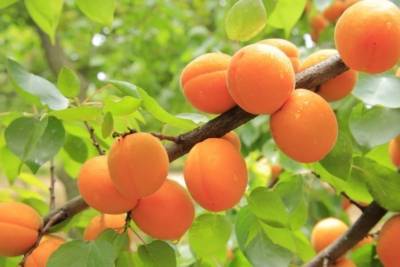
If you have the opportunity to collect them from your site, this is the best option. Mom is recommended to eat only fresh, ripe fruits grown without the use of chemicals. It is better to purchase apricots on the market from trusted sellers. If this is not possible, then choosing good fruits is easy:
- The surface of a ripe apricot is yellow or orange, with red spots allowed. Green color indicates unripeness.
- Wrinkles, cracks, and depressions indicate the beginning of deterioration.
- The fruit should not be too soft or hard.
- Ripe apricot has a strong aroma.
The fruits are stored for three to four days in the refrigerator and one to two days at room temperature.
If mom decides to buy dried apricots, then she should avoid bright orange, unnaturally beautiful dried fruits. For their production, sulfuric anhydrite is used, which accumulates in the body. It is he who gives the dried apricots their presentation.
Benefits for breastfeeding
Dried apricots and prunes lose only liquid during the drying process, retaining their beneficial substances. They contain a lot of vitamins A, B, C, PP. In addition, the products are rich in fiber, pectin, minerals, such as iron, phosphorus, magnesium, potassium, calcium. They have similar properties, so they complement each other. Thanks to its composition, the tandem has the following properties:
- replenishes the supply of nutrients in the body;
- removes toxins and heavy metals;
- improves digestion;
- helps with constipation;
- normalizes the functioning of the gastrointestinal tract;
- improves the functioning of the heart and blood vessels;
- prevents tumor processes;
- improves skin condition, slows down its aging;
- reduces blood pressure;
- helps with anemia, etc.
You can learn about other properties of the products from the video:
Dietary recommendations during lactation
Dried apricots are a heavy product, so it is best to introduce them into the diet during breastfeeding in the form of a compote or decoction (in the first half of the day to monitor the baby’s reaction).
You can also eat dried apricot in salads, hot and meat dishes, and desserts. Before consuming the product in its pure form, the fruits should be poured with boiling water for 20-30 minutes.
Daily and weekly norm
The permissible daily intake is 100 g. If a woman decides to introduce dried apricots into her diet without waiting until the due date, then this should be done gradually. Start with 10-15 g per day. The daily norm of compote is one glass. Weekly norm – 500-700 g.
Next, we suggest watching a video on how to prepare a healthy dessert with dried apricots:
The benefits of apricots
Of course, seeing these beautiful, bright, fragrant, tasty fruits, anyone will want to eat at least one fruit. Especially a nursing woman who eats for herself and for her baby. But here the question arises: is it possible for a mother to eat certain foods while breastfeeding? Can a nursing mother eat apricots?
The usefulness of fresh apricots, as well as dried dried apricots and apricots, has been proven and does not require confirmation. The fruits contain in their pulp useful, necessary substances necessary for humans.
- The sweet and sour taste of apricots comes from sugar and organic acids.
- Minerals, primarily potassium, help kidney function and the cardiovascular system. The starch and tannins contained in the fruits are also useful and necessary for the mother’s and child’s bodies for digestion.
- Fiber is beneficial for intestinal motility.
- Apricot pectins are involved in the removal of toxins.
- Hemoglobin increases immune defense and promotes hematopoiesis.
- The iodine contained in apricots will help the thyroid gland and remove unnecessary cholesterol.
- Tannins slightly strengthen the intestines, prevent diarrhea, and impart a special tart-astringent taste.
- Iron and iodine are necessary for the prevention of anemic conditions and for the normal functioning of the thyroid gland.
- The delicate “apricot” color gives the fruit beta-carotene, which is a strong antioxidant.
- Essential oils add a unique aroma.
A recipe for compote of dried apricots and apples for a nursing mother, which can be drunk in the first month after childbirth
Pediatricians recommend introducing a drink made from dried apricots into the mother’s diet after the child turns one month old. Some experts claim that it is allowed from birth if the mother has never had a negative reaction to this product. In this case, the likelihood of an allergy in the baby is minimal. It is best to use a gentle recipe, where the base is apples or pears, and dried apricots are added in minimal quantities for taste. The use of sugar in such a drink should be minimal. Over time, the amount of drying of apricots can be increased until dried apricots completely replace apples.
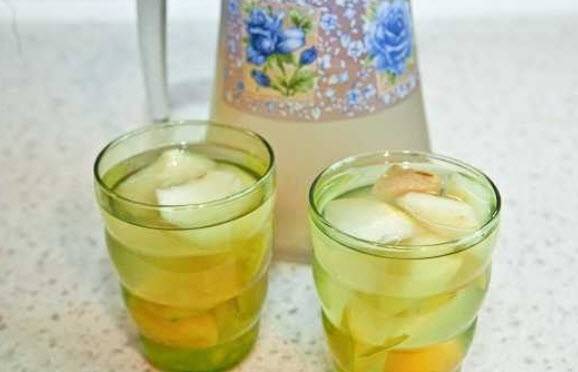
Homemade compote of dried apricots and apples for a nursing mother.
Compound:
- Apples - 4 medium.
- Dried apricots - 5–8 pieces.
- Sugar - to taste.
- Water - 3 liters.
Preparation:
- Pour boiling water over the dried apricots.
- Cut the apples into pieces.
- Drain the water from the dried apricots and add the drying agent to the apples.
- Add sugar and fill with water.
- Bring to a boil and cook for up to 5 minutes.
- Let stand covered for several hours.
Or use this video recipe for a universal preparation of dried fruit compote:

